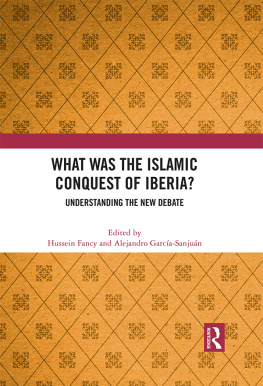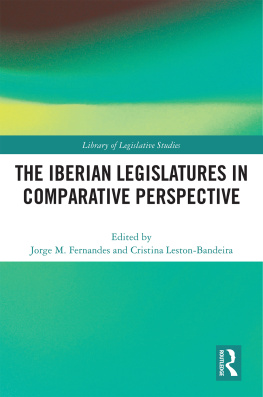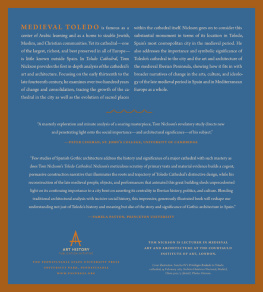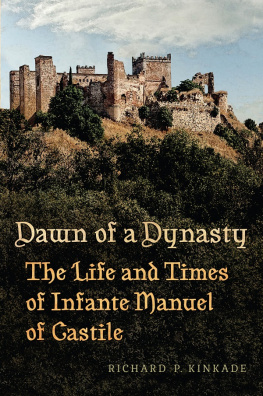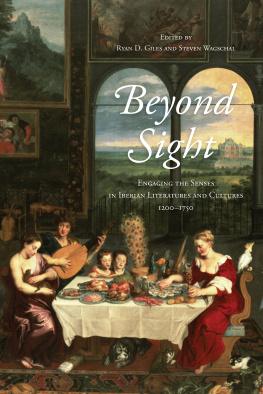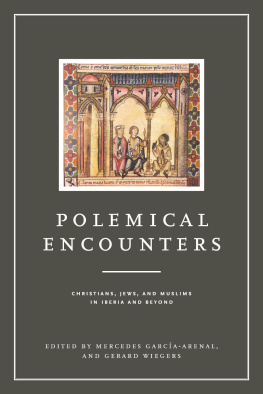War in the Iberian Peninsula, 7001600
War in the Iberian Peninsula, 7001600 is a panoramic synthesis of the Iberian Peninsula including the kingdoms of Leon and Castile, Aragon, Portugal, Navarre, al-Andalus and Granada. It offers an extensive chronology, covering the entire medieval period and extending through to the 16th century, allowing for a very broad perspective of Iberian history which displays the fixed and variable aspects of war over time.
The book is divided kingdom by kingdom to provide students and academics with a better understanding of the military interconnections across medieval and early modern Iberia.
The continuities and transformations within Iberian military history are showcased in the majority of chapters through markers to different periods and phases, particularly between the Early and High Middle Ages, and the Late Middle Ages.
With a global outlook, coverage of all the most representative military campaigns, sieges and battles between 700 and 1600, and a wide selection of maps and images, War in the Iberian Peninsula is ideal for students and academics of military and Iberian history.
Francisco Garca Fitz is Professor at the University of Extremadura, Spain. Expert in Medieval History, his research has addressed the military history and more specifically the policies and warlike relations between Christians and Muslims in medieval Spain.
Joo Gouveia Monteiro is Professor at the University of Coimbra, Portugal. His research has focused mainly on the military history of Portugal and Europe in the Middle Ages.
Themes in Medieval and Early Modern History
Series Editor: Natasha Hodgson, Nottingham Trent University.
This is a brand new series which straddles both medieval and early modern worlds, encouraging readers to examine historical change over time as well as promoting understanding of the historical continuity between events in the past, and to challenge perceptions of periodisation. It aims to meet the demand for conceptual or thematic topics which cross a relatively wide chronological span (any period between c. 5001750), including a broad geographical scope.
War in the Iberian Peninsula, 700-1600
Edited by Francisco Garca Fitz and Joo Gouveia Monteiro
First published 2018
by Routledge
2 Park Square, Milton Park, Abingdon, Oxon OX14 4RN
and by Routledge
711 Third Avenue, New York, NY 10017
Routledge is an imprint of the Taylor & Francis Group, an informa business
2018 selection and editorial matter, Francisco Garca Fitz and Joo Gouveia Monteiro; individual chapters, the contributors
The right of Francisco Garca Fitz and Joo Gouveia Monteiro to be identified as the authors of the editorial material, and of the authors for their individual chapters, has been asserted in accordance with sections 77 and 78 of the Copyright, Designs and Patents Act 1988.
All rights reserved. No part of this book may be reprinted or reproduced or utilised in any form or by any electronic, mechanical, or other means, now known or hereafter invented, including photocopying and recording, or in any information storage or retrieval system, without permission in writing from the publishers.
Trademark notice : Product or corporate names may be trademarks or registered trademarks, and are used only for identification and explanation without intent to infringe.
British Library Cataloguing in Publication Data
A catalogue record for this book is available from the British Library
Library of Congress Cataloging in Publication Data
A catalog record for this book has been requested
ISBN: 978-1-138-70745-0 (hbk)
ISBN: 978-0-8153-9999-5 (pbk)
ISBN: 978-1-315-20037-8 (ebk)
Typeset in Bembo
by Apex CoVantage, LLC
fundao edp
Actively supporting Culture is one of the EDP Foundations fundamental missions.
From contemporary creation to heritage and historic memory, from the visual to the performing arts, from literature to critical thinking, from the intersection of the arts to their relationship with science, technology and the environment, we develop an extensive range of our own productions and of patronage collaborations.
Today, the EDP Foundation is recognized as one of the main patrons of the arts in Portugal.
Contents
Guide
Antonio Jos Rodrguez Hernndez (National Distance Education University, Spain)
Carlos de Ayala Martnez (Autonomous University of Madrid, Spain)
Fernando Arias Guilln (University of Vallodolid, Spain)
Francisco Garca Fitz (University of Extremadura, Spain)
Javier Albarrn (Autonomous University of Madrid, Spain)
Joo Gouveia Monteiro (University of Coimbra, Portugal)
Jon Andoni Fernndez de Larrea Rojas (University of the Basque Country, Spain)
Jos Varandas (University of Lisbon, Portugal)
Lus Costa e Sousa (CHAM/FCSH Nova University, Lisbon, University of Azores, Portugal)
Mario Lafuente Gmez (University of Zaragoza, Spain)
Martn Alvira Cabrer (Complutense University of Madrid, Spain)
Miguel Gomes Martins (Instituto de Estudos Medievais/FCSH Nova University, Lisbon, Portugal)
Vtor Lus Gaspar Rodrigues (History Centre, Faculty of Arts, University of Lisbon Portugal)
Over the last three decades, historiography on medieval war has grown rapidly in Spain and Portugal, experiencing a methodological renewal which has helped to produce a body of first rate studies on the topic. In universities and other research centres dozens of master and doctoral theses have been submitted, various research projects have been carried out, a large number of conferences and seminars have been organized, and hundreds of academic papers and monographs have been published on specific topics, as well as some collective works summarizing Portuguese and Spanish military history.
Institutions such as the Comisso Portuguesa de Histria Militar, founded in 1989, or the Instituto de Historia y Cultura Militar in Spain, created in 1997, have systematically organized conferences, awarded research prizes, edited specialized journals and published books on the subject. But it has been in Portuguese and Spanish universities that research on the military history of the Iberian Middle Ages has been more intensely developed and has benefited from institutional support. Even though in the late 1960s Miguel ngel Ladero Quesada had already published some pioneering work on the Granada War (Ladero 19671969), it was not until the 1990s that doctoral theses and other research material began to be produced and published in a more consistent and continuous fashion.
All the Iberian medieval kingdoms have been thoroughly covered: in terms of the kingdom of Castile and Leon, the studies of Francisco Garca Fitz on military strategy and tactics against Islam during the High Middle Ages and Martn Alvira Cabrers work on the Battle of Las Navas de Tolosa have deepened our knowledge about war during this key period in the military expansion of the northern kingdoms (Garca Fitz 1998; Alvira 2012). The reality of war in Castile in the Late Middle Ages was analysed in the theses of Manuel Rojas Gabriel and Fernando Arias Guilln (Rojas Gabriel 1996; Arias Guilln 2012). The dissertations by Alvira Cabrer on Muret, Siz Serrano on the kingdom of Valencia and Mario Lafuente Gmez on Aragon have added significant detail to our knowledge of the military history of the Aragonese crown during the last three centuries of the Middle Ages (Alvira Cabrer 2008; Siz 2008; Lafuente 2011 and 2014), and these have already been investigated, with an emphasis on Catalonia, in the pioneering work of Mara Teresa Ferrer (Ferrer 2001). War in the kingdom of Navarre, particularly during the late medieval period, has been studied mainly by Jon Andoni Fernndez de Larrea (Fernndez de Larrea 1992 and 2013). As for Portugal, Joo Gouveia Monteiros thesis soon became a seminal work for the knowledge of Portuguese military history during the Late Middle Ages, later complemented by Miguel Gomes Martins study of the previous period (Monteiro 1998; Martins 2014). Vtor Rodrigues, Rui Bebiano, Lus Sousa, Gonalo Couceiro Feio and Francisco Contente Domingues made invaluable contributions to the study of the Portuguese 16th century (Rodrigues 1999; Bebiano 2000; Sousa 2016; Feio 2013; Domingues 2017), and those writing about the Spanish Crown during the same period such as Geoffrey Parker and Ren Quatrefages have engendered a line of continuity in the more recent work of Martnez Ruiz and Rodrguez Hernndez (Parker 1991; Quatrefages 1996; Martnez Ruiz 2008; Rodrguez Hernndez 2011, 2013 and 2015).


